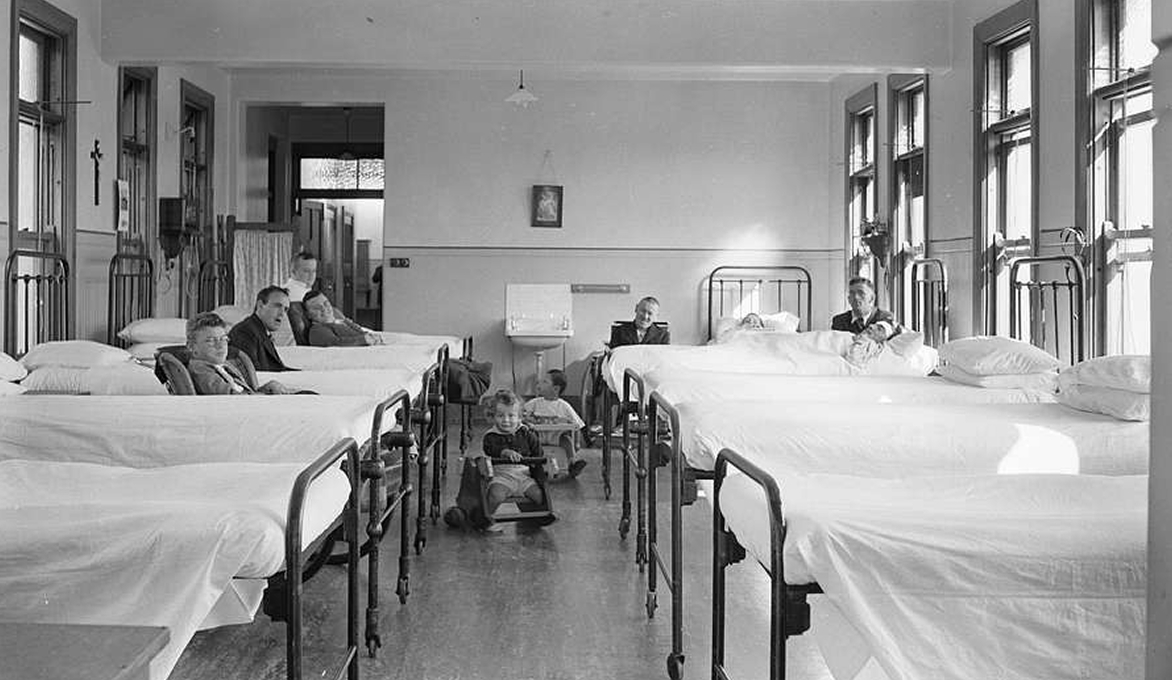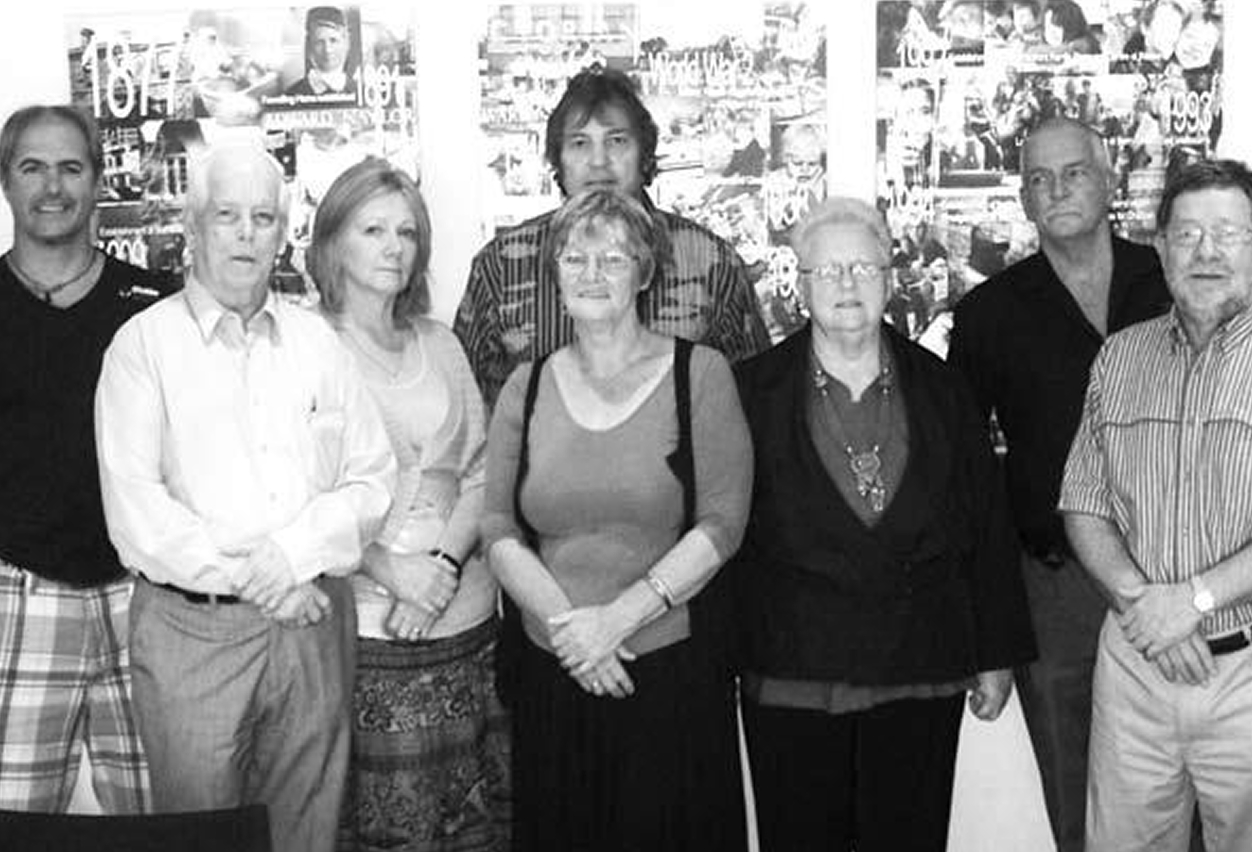Why
we exist
The Senate Inquiry would have lacked credibility had it not enabled a substantial and remarkable contribution by Forgotten Australians. The Inquiry identified the need for a national approach in coordinating advocacy and services for Forgotten Australians and Former Child Migrants. Arising from this came AFA, established in 2006 and launched in 2007 at Parliament House in Canberra by Senator Andrew Murray, himself a Former Child Migrant.
AFA membership included Forgotten Australians, Former Child Migrants and foster children and members of the stolen generations. Initial goals were defined as:
Advocating
adequate acknowledgement, accountability and redress for past wrongs
Achieving
the full implementation of the Senate Report recommendations, overseen by a National Watch Committee that would include Forgotten Australians (at least 51%)
Supporting
current efforts to highlight child protection issues, including those relating to Indigenous people and child migrants

Forgotten Australians formed the leadership of the organisation, with an advisory group of representatives and individuals providing ‘professional’ supports as required. Families Australia agreed to assist as the auspice organisation with infrastructure and secretariat support.
Limited one-off funding of $100,000 was provided to AFA by the Commonwealth Government (Department of Families, Housing, Community Services and Indigenous Affairs - FAHCSIA). This was to enable AFA to meet and to enable the provision of national advice, particularly in relation to the recommendations of the Forgotten Australians Senate Inquiry report.
While appreciated, the funding’s short-term nature caused uncertainty. This makes the significant contributions made by AFA to the Forgotten Australians policy environment since that time even more remarkable, and highly dependent upon the commitment and goodwill of key individuals and activists.
At the National Apology to Forgotten Australians and Former Child Migrants in November 2009, the Australian Government announced funding of $26.5 million for various initiatives, including seven Find and Connect Support services, as well as modest funding for AFA of $150,000 per annum. While this funding has increased with CPI, it will cease in June 2026.
The establishment of AFA as a separately incorporated entity occurred in 2014 when a governance structure was implemented. This was described in its first annual report of 2015:
“AFA is a peak body, made up of ‘any funded support service organisation whose primary purpose is to provide direct support to Forgotten Australians on a daily basis’. It is constituted as a peak body, made up of a combination of Forgotten Australian service providers and Forgotten Australians. It is not primarily established to act as a vehicle for broad participation by Forgotten Australians. Its membership has a majority of Forgotten Australians who also constitute a majority on the Board.”
AFA incorporated under the ACT Associations Incorporation Act 1991; this legal status enabled AFA to operate autonomously, limiting its tax liabilities and limiting the liabilities of individual members.
In 2023, AFA decided to change its corporate structure and Forgotten Australians are now the majority on our Board. Affiliate members are drawn from support services. This change strengthens the voices of Forgotten Australians in our work, advocacy and communication.
The power of AFA’s advocacy is recognised by many of the people who we’ve worked with, including government ministers and officials.
Most importantly, the authentic, powerful, no-nonsense voices of Forgotten Australians have been brought to social policy. There remains, however, a continuing need to educate and remind the Australian community of our existence. Sadly, many Forgotten Australians still feel that they are too often forgotten and invisible.
There is plenty of work ahead:
Social housing and aged care
We want Forgotten Australians to have access to priority social housing and sensitive and tailored aged care services
Health & education
We want Forgotten Australians to have access to better dental and health care.
Remembrance
A national remembrance week would complement our memorials
NSW Redress Scheme
New South Wales had one of the highest numbers of children in ‘care’ last century – where is the redress scheme for NSW?
Funding
We urge the Australian Government to continue our funding beyond June 2026
Find & Connect Support Services
It is vital that Find and Connect Support Services are continued beyond June 2026
From day one the AFA was determined to push the views and insights of people with lived experience to the forefront of policy making and administration. It has not been an easy path, but we acknowledge that partnering with service providers and other professionals is important for our effectiveness.
We’re a small but determined organisation, continually producing submissions, research, reports and commentary at the highest levels of government on issues which affect Forgotten Australians. Our advocacy has been unwavering, demonstrating that we are strong, hopeful and serious contributors to society.

National Apology to Forgotten Australians & Former Child Migrants
A centrepiece of AFA’s advocacy, the National Apology took place on 16 November 2009. On behalf of the Australian Government the then Prime Minister Kevin Rudd apologised to those who suffered abuse or neglect in institutional ‘care’.
10th anniversary of the 2009 Apology
In 2019 AFA distributed more than 4,000 brochures to ministers, departments and Forgotten Australians. ‘Still waiting for Justice—unfinished business’ is a campaign calling for a redress scheme covering all forms of abuse, as well as priority access to health care, social security benefits, housing and dental care.
Aged care project
Caring for Forgotten Australians, Former Child Migrants and Stolen Generations: an information package for aged care services was launched in 2016.
Oral history
Concluding in 2012, the National Library conducted an oral history project to record the lives and experiences of Forgotten Australians and Former Child Migrants. Interviews are preserved in the National Library.
Inside: Life in Children's Homes and Institutions exhibition
This exhibition was developed by the National Museum of Australia and supported by the Department of Families, Housing, Community Services and Indigenous Affairs. It was on show from November 2011 to November 2014.
Find and Connect Support Services
The Australian Government funds Find and Connect Support Services to provide nationally coordinated family tracing and support for Forgotten Australians (including Former Child Migrants) to locate personal and family history files and assist them to reunite with members of their families, where possible.
Forgotten Australians’ identity card
To be spared the need to keep telling their story, especially when dealing with health professionals, Forgotten Australians asked for what they termed an ‘identity card’. In 2022 the AFA developed and distributed more than 4,000 cards.
Monuments and memorials
We advocate for monuments, memorials or plaques on the sites of former institutions. The Australian Government has provided funding, while some state governments contributed to memorials. Monuments now exist nationwide, providing a safe place for Forgotten Australians to visit and reflect.
Royal Commission into Institutional Responses to Child Sexual Abuse
From 2013 – 2017 AFA provided seven submissions to the Royal Commission: preventing sexual abuse of children in out-of-home care; civil litigation; redress schemes; statutory victims of crime compensation schemes; redress and civil litigation; records and record keeping practices; and on criminal justice.
National Redress Scheme
In 2018 AFA launched a public campaign, made submissions and met with ministers and commissioners. Despite our advocacy, the National Redress Scheme remains limited to those who experienced sexual abuse. We continue to lobby for expanded eligibility.
Submission to the Aged Care Royal Commission (2019)
As we age, AFA stressed that many Forgotten Australians fear being re-institutionalised and there is a real need to receive specialist supports within the aged care system. The issues we raised were noted in the final report.
Open Doors educational film
During COVID the AFA funded the production of a 20-minute film highlighting the trauma Forgotten Australians may face upon entering the aged care system. It was launched in 2021 and screened at five international film festivals.
Life Stories project
In 2021 AFA received a grant to produce the Life Stories project. Writers engaged with more than 60 Forgotten Australians and Former Child Migrants to record their stories, which were then printed with the inclusions of participants’ photographs and memorabilia.
Strengthening our voice
AFA changed its corporate structure in 2023. Forgotten Australians now comprise the majority on our Board, with affiliate members drawn from support services.